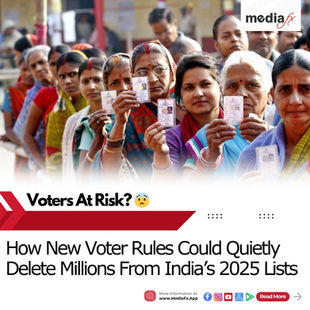🔥 Why India Struggled to Protect Skilled Workers in the Gulf 🌍💼
- MediaFx

- Aug 1, 2025
- 3 min read
TL;DR: India’s laws like the Emigration Act of 1983 and the eMigrate portal exist on paper, but skilled Gulf migrant workers still face severe issues—from recruiters scamming them, non‑payment of wages, denial of leave and visas, to hazardous living conditions. Bilateral treaties and MoUs helped somewhat, but Kafala sponsorship, weak enforcement, and India’s economic dependence on Gulf remittances have left millions of workers exposed. The solution lies in stronger legal reforms, worker‑led unions, and demands for government accountability from a people‑powered perspective.

🔍 Why the Government Falls Short
India set up the Emigration Act, 1983 to regulate overseas labour recruitment, and later launched eMigrate, a portal to link agents, employers, embassies, and workers digitally—but issues persist 😕 MoUs and bilateral agreements were signed with Qatar (minimum wage law 2021) and UAE (2016 recruitment MoU), they focus mostly on transparency—not worker empowerment. Without enforcement, they are toothless.
⚠️ Main Problems Workers Face
Kafala System: Ties workers to employers, limits job change or exit visa access, and lets employers confiscate passports and delay wages. Called “modern‑day slavery” by rights groups.
Recruitment Fraud: Workers pay hefty fees (sometimes ₹30,000+) and are promised high-income jobs, but in reality face exploitation. #RecruitmentDebt #FraudulentAgents
Abuse & poor conditions: Complaints include delayed pay, no weekly offs, unsafe housing, heat stress, and verbal or even physical abuse. From 2019 to mid‑2023, India’s MEA received ~48,095 abuse complaints—Kuwait had 23,020 alone.
👏 Government Actions So Far
Digital registration & tracking through eMigrate helps keep records but lacks real‑time intervention power.
Diplomatic pressure: India avoids harsh criticism of Gulf governments due to reliance on remittances (> $100 billion/year) and strategic ties.
Partial legal reforms: Some GCC states abolished parts of Kafala and introduced complaints platforms—Qatar’s reforms let 84 % of workers win wage cases in 2021–22. But India hasn’t secured full protections for skilled workers.
👥 Why India Remains Hesitant
Economic dependence: India values Gulf investment and oil trade, so avoids strong criticism or pressure.
Political trade‑off: Filing strong complaints could hurt diplomatic ties—and job pipelines for Indian states like UP, Bihar, Tamil Nadu, Rajasthan.
Shallow legal fixes: The 2021 Emigration Bill mainly improves admin systems but doesn’t redefine workers as rights‑bearing citizens.
🛠️ What should be done—from people’s perspective
Fair recruitment laws that ban fees, punish fake agents, and guarantee contracts in home languages.
Worker unions & grievance cells inside Gulf consulates, run by independent civil society groups. Let workers speak, not just lobbyists.
Kafala abolition push: India should join ILO calls to fully replace Kafala with contractual and portable sponsorship.
Strong repatriation plans: Provide low‑interest credits or emergency funds for stranded workers, so they’re not stuck in debt abroad.
Public accountability: Regular disclosure of abuses and embassy actions so public pressure builds on policymakers.
📝 MediaFx Opinion (People‑centric View)
From the lens of working-class India 🇮🇳, this isn’t just policy failure—it’s betrayal. While labour migrants build modern Gulf skylines and send billions home, India’s government keeps treating them like passive numbers, not agents of change. True protection can only come when workers have rights at par with citizens—not when treaties depend on Gulf goodwill. Building unions, legal backup, and a zero‑fee recruitment regime must become a national demand backed by daily struggle.
📣 Have your voice heard!
What do you think should change? Tag your worker friends, share stories, share this post, and let’s build momentum in comments 💬.













































